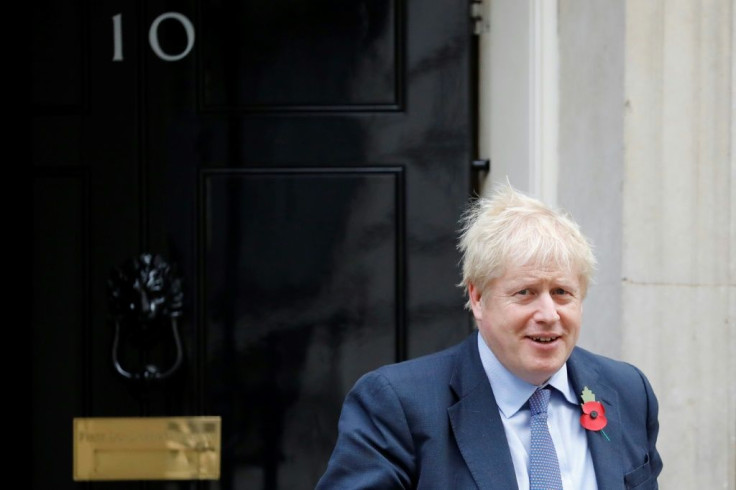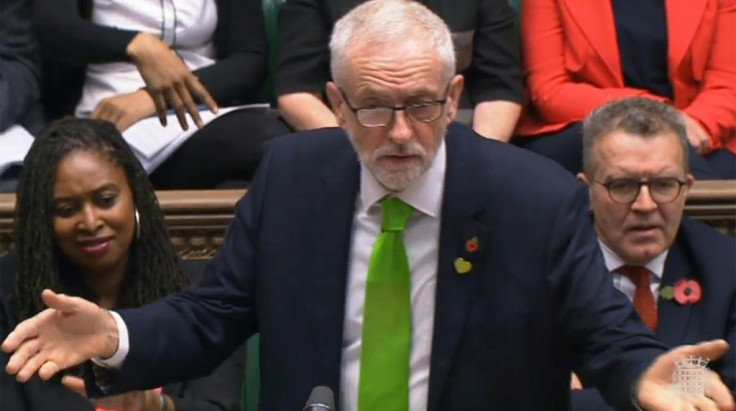British Business Looks Beyond Brexit With New Election

Britain's Brexit-weary business community on Wednesday relished the prospect of a pre-Christmas general election, even if fears linger in some quarters over a possible Labour government.
Business bigwigs hope the festive vote, proposed by Conservative Prime Minister Boris Johnson, will inject certainty into markets and unblock a faltering economy, which has long been plagued by fears over the consequences of the nation's exit from the European Union.
The election date was approved by the lower House of Commons on Tuesday, hours after Brussels formally agreed to postpone Britain's departure again, up to the end of January.
The December 12 poll was likely to be backed by the unelected upper House of Lords later Wednesday.
Thaw to frozen economy?
"This may be a winter election but it must bring a spring thaw to our frozen economy," said Carolyn Fairbairn, Director-General of the Confederation of British Industry business lobby.
"It offers a one-off chance to break the gridlock that has blighted our country for over three years -- we urge politicians on all sides to take it."
The election gives the opportunity to finally dispel three years of uncertainty that stemmed from the nation's shock Brexit referendum in 2016.
Many business leaders have warned that Brexit could send Britain spiralling into an economic downturn, as companies axe or delay investments in the face of chronic economic turmoil.
Business groups, companies and trade bodies cautiously welcomed news earlier this month that Johnson had struck a new Brexit divorce deal -- which will likely be at the centre of his election manifesto.
The Federation of Small Businesses (FSB) added Wednesday that it wanted the election to send a message to Westminster about returning to domestic issues -- such as tax reform and infrastructure investment.
"A general election gives our 5.8 million small businesses the opportunity to tell MPs across the UK that this cannot continue," said FSB chairman Mike Cherry.

"It is time for them to get back to the business of resolving the many domestic challenges such as radically reforming business rates, tackling the looming apprenticeships funding crisis and making sure local roads get the focus they deserve."
Adam Marshall, director-general of the British Chambers of Commerce (BCC) which represents thousands of firms, agreed that the deadlock needed to end.
"Businesses are really fed up with deadlock and polarisation," Marshall told BBC radio.
"They will trudge wearily to the polls, they want action and they have seen indecision."
Johnson, who had previously pushed for an October 31 departure date even with no deal, leads a political party that is generally regarded as being pro-business.
He now to secure a Conservative majority in the House of Commons for the next stage of the Brexit saga -- forming new trade agreements.
The main opposition Labour party's leader, Jeremy Corbyn, has vowed to redistribute wealth to address inequality and renationalise assets, but his policies are commonly seen as being unfriendly towards business.
Labour's Brexit promise is to strike a more Europe-friendly deal with Brussels that preserves many of the existing trade ties.
'Visions for post-Brexit future'
CBI boss Fairbairn stressed on Wednesday that the electorate would now decide the next step.
"It's ... an opportunity for all parties to present their visions for the UK's future," she added.
"By replacing ideology with evidence, the next government - working alongside business - can show the UK is a great place to invest, start and build a company."
She added: "Ending political instability will enable a renewed focus on domestic priorities, including education and infrastructure, which will transform the jobs and livelihoods of millions of people."
© Copyright AFP 2024. All rights reserved.





















